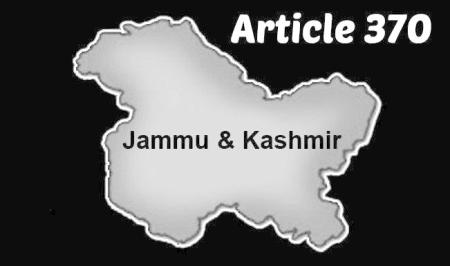Article 370- all you need to know
Hello aspirants,
The ongoing row over the article 370 these days makes it a hot topic. The aspirants must have a clear picture of the article; therefore this post will help you understand all the important aspects of article 370.
So let's begin
-
What is article 370?
- Article 370 of the Indian Constitution is a 'temporary provision' which grants special autonomous status to Jammu & Kashmir.
- Under Part XXI of the Constitution of India, which deals with "Temporary, Transitional and Special provisions", the state of Jammu & Kashmir has been accorded special status under Article 370.
- All the provisions of the Constitution which apply to other states do not apply to J&K.
- For example, till 1965, J&K had a Sadr-e-Riyasat for governor and prime minister in place of the chief minister.
-
What is the History associated with article 370?
- The provision was drafted in 1947 by Sheikh Abdullah, who had by then been appointed the prime minister of Jammu & Kashmir by Maharaja Hari Singh and Jawahar Lal Nehru.
- Sheikh Abdullah had argued that Article 370 should not be placed under temporary provisions of the Constitution.
- He wanted 'iron clad autonomy' for the state, which Centre didn't want.
-
What is the special provision in article 370 for J&K?
- Clause 7 of the Instrument of Accession signed by Maharaja Hari Singh declared that the State could not be compelled to accept any future Constitution of India.
- Some of the special provisions are-
- It exempted the State from the complete applicability of the Constitution of India. The State was allowed to have its own Constitution.
- Central legislative powers over the State were limited, at the time of the framing, to the three subjects of defence, foreign affairs and communications.
- Other constitutional powers of the Central Government could be extended to the State only with the concurrence of the State Government.
- The 'concurrence' was only provisional. It had to be ratified by the State's Constituent Assembly.
- The State Government's authority to give 'concurrence' lasted only until the State Constituent Assembly was convened. Once the State Constituent Assembly finalised the scheme of powers and dispersed, no further extension of powers was possible.
- Article 370 could be abrogated or amended only upon the recommendation of the State's Constituent Assembly.
So this was a short explanation about the topic. I hope this will help you all to have a clear picture and view on the subject.
Stay connected to DDE for more.






 Order Now on Amazon
Order Now on Amazon
